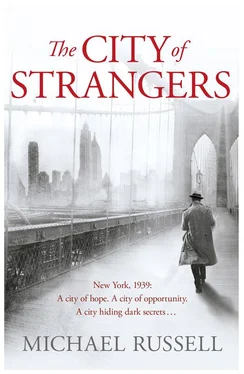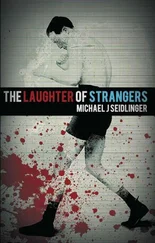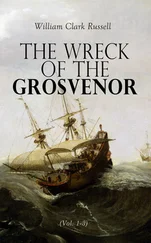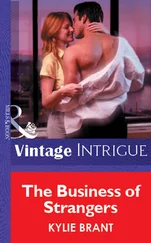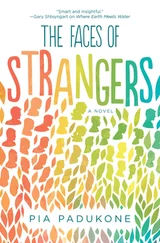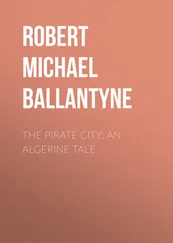Terry Gregory drained the whiskey in his glass and stood up.
‘It’s an ill wind, eh Sergeant?’
He walked out to the lobby and into the street.
In the room Valerie was sitting up, reading. She laughed as Stefan came in.
‘What was all that about?’
‘The man I’ve got to bring back from New York has disappeared.’
‘So aren’t you going?’
‘They’ll find him. Well, that’s what the superintendent said.’
He shrugged. She said no more. As he sat down on the bed she stretched out her hand to touch his back. He sat there for a moment, not moving, feeling her fingers. He was aware how much he liked her. That was the thought in his head that made him smile. It wasn’t love between them, it never had been, but it wasn’t nothing, for either of them. He turned round and reached across the bed, stroking her hair. As he kissed her she pulled him slowly down on to her. Neither of them needed to speak now to know that this would be the last time they would make love.
6. West Thirty-Sixth Street
New York
Longie Zwillman stood at the counter in the window of Lindy’s diner on Broadway, between 49 thand 50 th. He kept his hat on and his overcoat done up, though it was warm enough in Lindy’s. He was thirty-five; he didn’t look older but somehow people felt he was older. There was age behind his eyes, and behind the half smile that was almost always on his lips there was nothing that suggested he found very much to laugh at. He was drinking the cup of coffee and eating the cheesecake Clara Lindermann had brought him personally.
It was busy in Lindy’s, but there was space at the window where Zwillman stood looking out, seemingly at nothing in particular. The two big men in homburgs who stood behind him would have made sure there was space, because Longie didn’t like people too close to him; even in a New York diner he expected the courtesy of space. But they didn’t have to make room for him. There was something about the way Longie held himself, and the way he looked at people when they came near him, that ensured he rarely had to ask for anything. He was a courteous man though; he seemed to inspire courtesy in others. Broadway wasn’t his territory; neither was Manhattan. He had come over from New Jersey. But he was respected here as he was respected everywhere. The work he had today crossed no lines. It wasn’t business. It was pest control, and he had an interest in that.
Outside the window, across the sidewalk, a truck stopped. It was a fish truck, one of the hundreds that pulled in and out of Fulton Market every night. The driver looked through the window at the man in the overcoat, eating the last forkful of Lindy’s cheesecake. Zwillman nodded. The truck drove on.
Longie finished his coffee and walked out on to Broadway, followed by the two big men. He sauntered down towards Times Square. He went almost unnoticed in the afternoon crowds bustling up and down around him, but not entirely. Several people recognised him and nodded respectfully. He nodded in return. Several times men walked up to him and spoke, in low tones of respect, asking after his health and the health of his family. They waited for him to stretch out his hand before they attempted to shake his. Two NYPD officers were among those who stopped and received an invitation to shake that hand.
In all the unseeing and indifferent noise of Broadway, Longie Zwillman walked like a secret island of calm and courtesy, or so it seemed. He knew who every one of the people who greeted him was, even out of his own fiefdom; and they were grateful for it. To know him and to be known by him was something. To lose those small favours was something else; after all respect and fear weren’t very different.
There was the beginning of darkness in the grey March sky over Times Square, and the lights all along Broadway were beginning to push the trash and the seedy corners out of sight. Crowds jammed around the 42 ndStreet subway as the people heading home from work met the people coming out to the theatres and movies, restaurants and clubs, or to do what most people did on Broadway, to be there and to walk about.
Pushing up from the subway, through the hundreds of New Yorkers streaming down, was a group of men, a dozen or so, all beered up for the evening in advance. They were rowdy already, laughing loudly and looking around with a kind of purpose and anticipation they seemed to find funny and exciting all at the same time; they were their own entertainment. But there was an aggression in their laughter that was more than just a bunch of guys with too much beer inside them. Several of them carried bundles of newspapers; one carried a furled flag; another carried billboards. Two of the men wore distinctive silver-grey shirts with a large L on the left side, in scarlet, close to the heart; the uniform of the Silver Legion of America. When they stopped on the corner of Broadway and 43 rdthey were quieter, gathering around the flags.
The newspapers were handed out, the billboards propped against a store front, the flags unfurled. The flag was the red L on silver; L for the Legion, L for Loyalty, L for Liberation. The placards bore scrawled headlines from the newspapers the men were selling: Social Justice , Liberation , National American . ‘Buy Christian Say No to Jew York!’ ‘Keep Us out of England’s War!’ ‘The Protocols of Zion and the End of America!’ ‘Roosevelt Public Enemy Number One!’ They moved along Broadway in twos and threes, hawking their papers, and shouting the headlines.
They were all New Yorkers, with names like other New Yorkers; mostly they were German and Irish names. But they weren’t only there to sell; they were looking for the enemies of America in the streets of their city; anyone they thought might be a Jew.
Dan Walker was already bored calling the headlines of the papers he never read anyway. He wanted another beer. Van Nosdall was a lot keener, thrusting out blue mimeographed slips as he moved through the crowds. ‘There’s only room for one “ism” in America, Americanism!’ ‘Democracy, Jewocracy!’ ‘Hey, Yid, no one wants you here! We’re coming for you!’ As he screamed ‘Coming for you!’ at an elderly couple, heading to the theatre, he formed his fingers into a pistol and laughed. ‘Pow!’ Dan Walker yawned.
‘Let’s get a beer for Christ’s sake!’
Then he stopped and smiled.
‘See the piece of shit there –’
He was looking at a boy of sixteen or seventeen, with a thin face and large, dark eyes. Anyone would have said he was Jewish. You could always tell a Jew of course, but this one was Jewish Jewish. He was staring at the two men with real anger in his face, and he wasn’t moving; he wasn’t trying to run the way he was supposed to. Dan Walker walked forward, with new enthusiasm for the slogans he had been leaving to Van Nosdall till now. He walked up to the youth, who was standing his ground, quietly unyielding.
‘Read Social Justice and learn how to solve the Jewish question.’
The Jewish youth nodded, unexpectedly.
‘OK, I’ll take one.’
It was an odd response; he should have already been running.
Dan Walker looked round at Van Nosdall.
Nosdall shrugged. He handed over a copy of Social Justice , and the youth handed him some change. As he opened the paper the youth glanced at the contents, with a look of deep seriousness. He turned a page.
‘I’ve been reading Father Coughlin’s articles about the Protocols of the Elders of Zion. It’s certainly some piece of work, some piece of work.’
He folded the newspaper up and put it in his pocket.
‘I’ve never seen shit like it. So this is what I’m going to do – I’m going to take it home and wipe my arse with every last, lying, fucking page.’
Читать дальше
